AI in Government Contracts: Navigating the Legal Landscape
If you're diving into the world of government contracts and artificial intelligence (AI), you're stepping into a realm brimming with opportunities but also fraught with legal complexities. As AI becomes more entwined with government operations, it's crucial for both contractors and agencies to get a grip on the legal and regulatory frameworks that govern AI's procurement and application. This piece aims to unpack the key considerations of AI in government contracts, offering you practical insights to navigate this ever-shifting terrain. It's all about equipping you with actionable strategies to tackle these challenges head-on, every single day.
Key Points
- AI is revolutionizing government contracting, boosting efficiency but also sparking legal and ethical debates.
- Understanding the regulatory landscape, from data privacy to security and bias, is vital for successfully integrating AI into government functions.
- Government contractors need to ensure their AI solutions adhere to relevant laws and regulations, including those concerning intellectual property and cybersecurity.
- Transparency and explainability in AI systems are crucial for fostering trust and accountability within government services.
- It's essential to weigh the ethical implications carefully to minimize risks and encourage responsible AI innovation in the public sector.
Understanding the AI Landscape in Government Contracting
The Growing Role of AI in Government
AI is reshaping government agencies at a breakneck pace. It's not just about automating routine tasks anymore; it's about enhancing decision-making processes too. From fraud detection to cybersecurity, citizen services, and national security, AI is being leveraged to improve efficiency, cut costs, and enhance outcomes. But with this surge in AI adoption comes a slew of new legal and regulatory considerations that need to be addressed to ensure its responsible and effective use. Government contracts are central to this transformation, dictating how AI solutions are developed, deployed, and utilized across the public sector. As AI becomes more ubiquitous, a thorough understanding of its legal implications is non-negotiable for anyone involved in government work. This topic kicks off a new series on our Reed Smith Podcast, focusing on AI in government contracts.
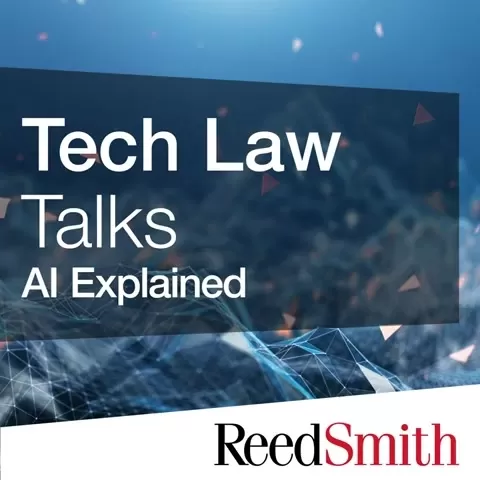
Defining AI for Government Contracting Purposes
Getting a handle on what constitutes AI within the realm of government contracting is crucial for setting clear boundaries and ensuring consistent application of regulations. Although there's no one-size-fits-all definition, AI typically refers to systems capable of tasks that usually require human intelligence—think learning, reasoning, problem-solving, and perception. In the context of government contracting, AI can include a broad spectrum of technologies like machine learning, natural language processing, computer vision, and robotics. It's imperative for government agencies to define AI's scope in their solicitations and contracts clearly, avoiding ambiguity and ensuring contractors grasp the requirements. The definition should also take into account the potential risks and ethical implications of the specific AI application. By establishing a clear and comprehensive definition, government agencies can foster responsible AI innovation and mitigate potential harms. Our Tech Law Talks series will delve into the key challenges and opportunities within this rapidly evolving AI landscape.
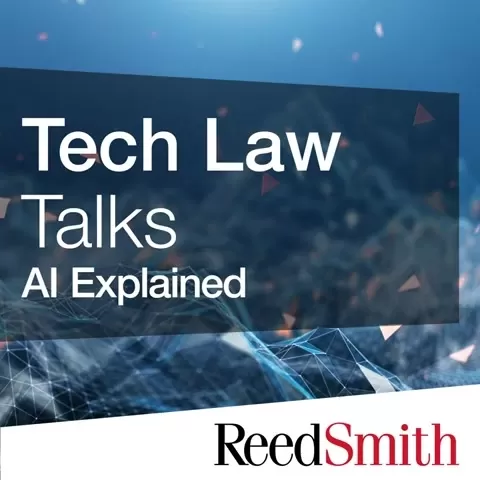
Key Legal and Regulatory Frameworks Governing AI in Government
The use of AI in government contracting is governed by a labyrinth of laws and regulations, covering everything from data privacy and security to intellectual property and bias. Take the Privacy Act of 1974, for instance, which outlines rules for how federal agencies can collect, use, and disclose personal information. Then there's the Federal Information Security Modernization Act (FISMA), which sets a framework for securing federal information systems and data. Agencies also have to comply with accessibility regulations like Section 508 of the Rehabilitation Act, ensuring electronic and information technology is accessible to individuals with disabilities. When it comes to intellectual property, government contractors need to be vigilant, especially with the use of open-source software, which may come with specific licensing requirements. And let's not forget about addressing biases in AI algorithms to ensure fairness and prevent discriminatory outcomes. These regulatory frameworks often intersect and interact, creating a complex compliance landscape for government contractors.
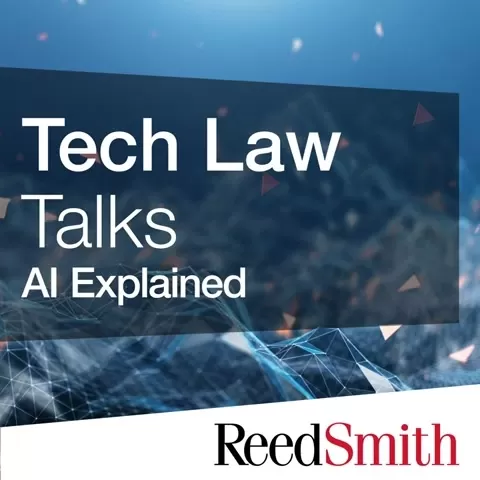
Spotlight on Government Agencies and AI
The Role of GSA in AI and Government Contracting
The General Services Administration (GSA) is a key player in shaping the use of AI across the federal government. GSA manages centralized procurement and shared services for federal agencies, overseeing a vast real estate portfolio and handling billions in government contracts. Their influence stretches across goods and services, delivering technology to countless government and public users across numerous agencies. For those unfamiliar, GSA is an independent agency that facilitates AI adoption by streamlining procurement processes, offering resources and expertise, and promoting best practices. They're also involved in policy development and standardization to ensure responsible and effective AI implementation. GSA's efforts are vital for speeding up AI adoption and driving innovation across the federal government. When we decided to launch a podcast on AI in government contracting, Crystal was the obvious choice as our guest to discuss this topic, and I'm thrilled to have her here today.
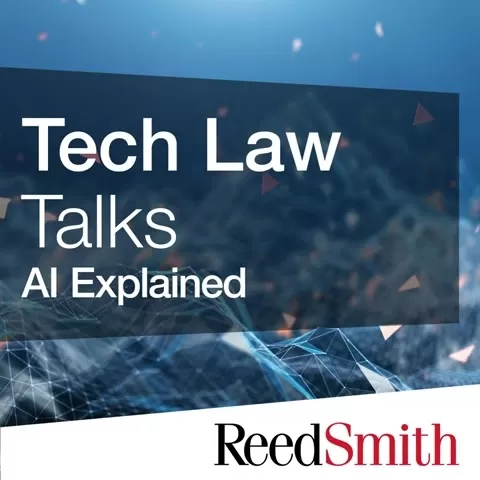
Other Key Agencies Involved in AI Policy and Implementation
Beyond GSA, other government agencies are actively involved in shaping AI policy and implementation. The National Institute of Standards and Technology (NIST) plays a crucial role in developing standards and guidelines for AI, particularly around bias and explainability. The Office of Management and Budget (OMB) oversees the development and implementation of government-wide AI policies. The Department of Defense (DoD) is a major investor in AI research and development, focusing on applications related to national security. These agencies, among others, collaborate to promote responsible AI innovation and tackle the challenges and opportunities this transformative technology presents.
Practical Guidance for Navigating AI in Government Contracts
Ensuring Compliance with Data Privacy and Security Requirements
Protecting data privacy and security is a top priority in government contracting. Contractors need to implement robust safeguards to shield sensitive data from unauthorized access, use, or disclosure. This means adhering to relevant laws and regulations like the Privacy Act and FISMA. Regular risk assessments are crucial to pinpoint potential vulnerabilities and implement appropriate security controls. It's also important to train employees on data privacy and security best practices. By prioritizing data protection, government contractors can build trust with their government clients and steer clear of costly data breaches and legal penalties.
Addressing Bias and Promoting Fairness in AI Algorithms
AI algorithms can inadvertently perpetuate and amplify existing biases if they're not carefully designed and monitored. Government contractors need to take proactive steps to address bias and promote fairness in their AI solutions. This includes using diverse datasets for training AI models, conducting regular bias audits, and implementing mitigation strategies. Transparency about the limitations of AI algorithms and clear explanations of how they work are also essential. By prioritizing fairness and accountability, government contractors can build trust with stakeholders and ensure that AI systems are used ethically and responsibly.
Navigating Intellectual Property Rights and Licensing Agreements
Intellectual property (IP) rights are a significant factor in AI development and deployment. Government contractors must navigate IP rights and licensing agreements carefully to avoid infringement and ensure compliance. This involves conducting due diligence to identify any existing IP rights that may be relevant to their AI solutions. Contractors should also negotiate clear licensing agreements with IP owners to ensure they have the necessary rights to use the technology. Protecting their own IP rights by seeking patent protection for innovative AI technologies is equally important. By managing IP rights effectively, government contractors can safeguard their investments and maintain a competitive edge.
Promoting Transparency and Explainability in AI-Driven Government Services
Transparency and explainability are essential for building trust and ensuring accountability in AI-driven government services. Government contractors should strive to make their AI solutions as transparent and explainable as possible. This includes providing clear explanations of how AI algorithms work, the data they use, and the decisions they make. Opportunities for stakeholders to provide feedback and ask questions about AI systems should also be provided. By promoting transparency and explainability, government contractors can build trust with citizens and ensure that AI is used responsibly and accountably.
Pros and Cons of AI in Government Contracts
Pros
- Increased efficiency and productivity
- Improved decision-making
- Enhanced citizen services
- Reduced costs
- Better fraud detection
- Stronger cybersecurity
Cons
- Data privacy and security risks
- Potential for bias and discrimination
- Lack of transparency and explainability
- Job displacement
- Over-reliance on AI
- Cybersecurity vulnerabilities
- Intellectual property risks
Frequently Asked Questions
What is the role of the federal government in regulating AI?
The federal government plays a multifaceted role in regulating AI, encompassing policy development, standard-setting, and oversight. Various agencies shape the regulatory landscape for AI, including the National Institute of Standards and Technology (NIST), the Office of Management and Budget (OMB), and the Federal Trade Commission (FTC). NIST is responsible for developing standards and guidelines for AI, particularly related to bias, explainability, and cybersecurity. OMB oversees the development and implementation of government-wide AI policies. The FTC enforces consumer protection laws to ensure AI systems are fair and transparent. The federal government has issued several executive orders and policy memoranda related to AI, aiming to promote responsible innovation, protect civil rights and liberties, and ensure AI benefits society. As AI technology evolves, so does the federal government's regulatory approach. It's likely that more laws and regulations will emerge to address the challenges and opportunities AI presents. By actively shaping the regulatory landscape, the federal government seeks to promote responsible AI innovation and mitigate potential harms.
How can government contractors prepare for the future of AI in government contracting?
Preparing for the future of AI in government contracting requires a proactive and strategic approach. Government contractors should invest in AI training and education for their workforce, helping employees understand AI's basics, potential applications, and associated risks. Conducting regular risk assessments to identify vulnerabilities in AI systems is essential, considering data privacy, security, bias, and other ethical factors. Contractors should develop and implement AI ethics policies and guidelines to outline the principles guiding the development and use of AI systems. Engaging with government agencies and stakeholders to shape AI's future in government contracting is also crucial. This includes participating in industry forums, providing feedback on proposed regulations, and collaborating on research and development projects. Staying updated on the latest developments in AI technology and policy will help contractors adapt to the changing landscape and remain competitive. By taking these steps, government contractors can position themselves for success in the rapidly evolving world of AI in government contracting.
Related Questions
What are the ethical considerations for using AI in government contracts?
The ethical implications of using AI in government contracts are multifaceted, covering issues like fairness, accountability, transparency, and potential bias. Government contractors must prioritize these ethical considerations to ensure AI systems are used responsibly and beneficially. Bias in AI algorithms can perpetuate and amplify societal inequalities, leading to discriminatory outcomes. Contractors must identify and mitigate bias by using diverse datasets for training, conducting regular bias audits, and implementing mitigation strategies. Accountability is another critical ethical consideration, requiring clear lines of responsibility for AI system decisions. This includes ensuring the accuracy, reliability, and fairness of AI algorithms. Transparency is essential for building trust and ensuring accountability, with contractors striving to make AI solutions as transparent and explainable as possible. The potential impact of AI on employment and workforce development must also be considered, as AI may automate tasks and lead to job displacement. Contractors should work with government agencies to develop retraining and upskilling strategies. Additionally, AI solutions should align with democratic values and principles, enhancing citizen engagement, promoting transparency in government operations, and protecting fundamental rights and freedoms. Ethical considerations should be integrated into all stages of the AI lifecycle, from design and development to deployment and monitoring. By prioritizing ethics, government contractors can help ensure AI benefits society as a whole.
What are the potential risks associated with using AI in government contracts?
Using AI in government contracts presents several potential risks that need careful management. Data privacy and security are major concerns, as AI systems often rely on large datasets containing sensitive personal information. Government contractors must implement robust safeguards to protect this data from unauthorized access, use, or disclosure. Bias in AI algorithms can lead to discriminatory outcomes, perpetuating societal inequalities if trained on biased data. Contractors must take steps to identify and mitigate bias. Lack of transparency and explainability can undermine trust and accountability, making it difficult to understand how AI systems work and the decisions they make. Contractors should strive to make their AI solutions transparent and explainable. Over-reliance on AI can create vulnerabilities, making government agencies susceptible to disruptions or failures. Contractors should develop contingency plans and ensure backup systems are in place. Cybersecurity threats can compromise AI systems, disrupting their operations or manipulating their outputs. Contractors must implement robust cybersecurity measures to protect AI systems. Intellectual property risks can arise from the use of AI, as systems often rely on algorithms and data. Contractors must ensure they have the necessary rights to use this intellectual property. Failing to address these risks can lead to costly data breaches, legal penalties, and reputational damage. Government contractors must proactively manage these risks to ensure the responsible and effective use of AI in government contracts.
Related article
 AI-Powered Cover Letters: Expert Guide for Journal Submissions
In today's competitive academic publishing environment, crafting an effective cover letter can make the crucial difference in your manuscript's acceptance. Discover how AI-powered tools like ChatGPT can streamline this essential task, helping you cre
AI-Powered Cover Letters: Expert Guide for Journal Submissions
In today's competitive academic publishing environment, crafting an effective cover letter can make the crucial difference in your manuscript's acceptance. Discover how AI-powered tools like ChatGPT can streamline this essential task, helping you cre
 US to Sanction Foreign Officials Over Social Media Regulations
US Takes Stand Against Global Digital Content Regulations
The State Department issued a sharp diplomatic rebuke this week targeting European digital governance policies, signaling escalating tensions over control of online platforms. Secretary Marco
US to Sanction Foreign Officials Over Social Media Regulations
US Takes Stand Against Global Digital Content Regulations
The State Department issued a sharp diplomatic rebuke this week targeting European digital governance policies, signaling escalating tensions over control of online platforms. Secretary Marco
 Ultimate Guide to AI-Powered YouTube Video Summarizers
In our information-rich digital landscape, AI-powered YouTube video summarizers have become indispensable for efficient content consumption. This in-depth guide explores how to build a sophisticated summarization tool using cutting-edge NLP technolog
Comments (2)
0/200
Ultimate Guide to AI-Powered YouTube Video Summarizers
In our information-rich digital landscape, AI-powered YouTube video summarizers have become indispensable for efficient content consumption. This in-depth guide explores how to build a sophisticated summarization tool using cutting-edge NLP technolog
Comments (2)
0/200
![DennisAllen]() DennisAllen
DennisAllen
 August 12, 2025 at 9:00:59 AM EDT
August 12, 2025 at 9:00:59 AM EDT
AI in government contracts sounds like a sci-fi plot, but the legal maze is real! Super fascinating how fast this tech is moving—hope they sort out the red tape soon. 🚀


 0
0
![JoeCarter]() JoeCarter
JoeCarter
 July 27, 2025 at 9:18:39 PM EDT
July 27, 2025 at 9:18:39 PM EDT
AI in government contracts sounds like a sci-fi plot, but it’s real and tricky! The legal maze is wild—makes me wonder if AI will outsmart the lawyers before it runs the show. 😅 Fascinating read!


 0
0
If you're diving into the world of government contracts and artificial intelligence (AI), you're stepping into a realm brimming with opportunities but also fraught with legal complexities. As AI becomes more entwined with government operations, it's crucial for both contractors and agencies to get a grip on the legal and regulatory frameworks that govern AI's procurement and application. This piece aims to unpack the key considerations of AI in government contracts, offering you practical insights to navigate this ever-shifting terrain. It's all about equipping you with actionable strategies to tackle these challenges head-on, every single day.
Key Points
- AI is revolutionizing government contracting, boosting efficiency but also sparking legal and ethical debates.
- Understanding the regulatory landscape, from data privacy to security and bias, is vital for successfully integrating AI into government functions.
- Government contractors need to ensure their AI solutions adhere to relevant laws and regulations, including those concerning intellectual property and cybersecurity.
- Transparency and explainability in AI systems are crucial for fostering trust and accountability within government services.
- It's essential to weigh the ethical implications carefully to minimize risks and encourage responsible AI innovation in the public sector.
Understanding the AI Landscape in Government Contracting
The Growing Role of AI in Government
AI is reshaping government agencies at a breakneck pace. It's not just about automating routine tasks anymore; it's about enhancing decision-making processes too. From fraud detection to cybersecurity, citizen services, and national security, AI is being leveraged to improve efficiency, cut costs, and enhance outcomes. But with this surge in AI adoption comes a slew of new legal and regulatory considerations that need to be addressed to ensure its responsible and effective use. Government contracts are central to this transformation, dictating how AI solutions are developed, deployed, and utilized across the public sector. As AI becomes more ubiquitous, a thorough understanding of its legal implications is non-negotiable for anyone involved in government work. This topic kicks off a new series on our Reed Smith Podcast, focusing on AI in government contracts.

Defining AI for Government Contracting Purposes
Getting a handle on what constitutes AI within the realm of government contracting is crucial for setting clear boundaries and ensuring consistent application of regulations. Although there's no one-size-fits-all definition, AI typically refers to systems capable of tasks that usually require human intelligence—think learning, reasoning, problem-solving, and perception. In the context of government contracting, AI can include a broad spectrum of technologies like machine learning, natural language processing, computer vision, and robotics. It's imperative for government agencies to define AI's scope in their solicitations and contracts clearly, avoiding ambiguity and ensuring contractors grasp the requirements. The definition should also take into account the potential risks and ethical implications of the specific AI application. By establishing a clear and comprehensive definition, government agencies can foster responsible AI innovation and mitigate potential harms. Our Tech Law Talks series will delve into the key challenges and opportunities within this rapidly evolving AI landscape.

Key Legal and Regulatory Frameworks Governing AI in Government
The use of AI in government contracting is governed by a labyrinth of laws and regulations, covering everything from data privacy and security to intellectual property and bias. Take the Privacy Act of 1974, for instance, which outlines rules for how federal agencies can collect, use, and disclose personal information. Then there's the Federal Information Security Modernization Act (FISMA), which sets a framework for securing federal information systems and data. Agencies also have to comply with accessibility regulations like Section 508 of the Rehabilitation Act, ensuring electronic and information technology is accessible to individuals with disabilities. When it comes to intellectual property, government contractors need to be vigilant, especially with the use of open-source software, which may come with specific licensing requirements. And let's not forget about addressing biases in AI algorithms to ensure fairness and prevent discriminatory outcomes. These regulatory frameworks often intersect and interact, creating a complex compliance landscape for government contractors.

Spotlight on Government Agencies and AI
The Role of GSA in AI and Government Contracting
The General Services Administration (GSA) is a key player in shaping the use of AI across the federal government. GSA manages centralized procurement and shared services for federal agencies, overseeing a vast real estate portfolio and handling billions in government contracts. Their influence stretches across goods and services, delivering technology to countless government and public users across numerous agencies. For those unfamiliar, GSA is an independent agency that facilitates AI adoption by streamlining procurement processes, offering resources and expertise, and promoting best practices. They're also involved in policy development and standardization to ensure responsible and effective AI implementation. GSA's efforts are vital for speeding up AI adoption and driving innovation across the federal government. When we decided to launch a podcast on AI in government contracting, Crystal was the obvious choice as our guest to discuss this topic, and I'm thrilled to have her here today.

Other Key Agencies Involved in AI Policy and Implementation
Beyond GSA, other government agencies are actively involved in shaping AI policy and implementation. The National Institute of Standards and Technology (NIST) plays a crucial role in developing standards and guidelines for AI, particularly around bias and explainability. The Office of Management and Budget (OMB) oversees the development and implementation of government-wide AI policies. The Department of Defense (DoD) is a major investor in AI research and development, focusing on applications related to national security. These agencies, among others, collaborate to promote responsible AI innovation and tackle the challenges and opportunities this transformative technology presents.
Practical Guidance for Navigating AI in Government Contracts
Ensuring Compliance with Data Privacy and Security Requirements
Protecting data privacy and security is a top priority in government contracting. Contractors need to implement robust safeguards to shield sensitive data from unauthorized access, use, or disclosure. This means adhering to relevant laws and regulations like the Privacy Act and FISMA. Regular risk assessments are crucial to pinpoint potential vulnerabilities and implement appropriate security controls. It's also important to train employees on data privacy and security best practices. By prioritizing data protection, government contractors can build trust with their government clients and steer clear of costly data breaches and legal penalties.
Addressing Bias and Promoting Fairness in AI Algorithms
AI algorithms can inadvertently perpetuate and amplify existing biases if they're not carefully designed and monitored. Government contractors need to take proactive steps to address bias and promote fairness in their AI solutions. This includes using diverse datasets for training AI models, conducting regular bias audits, and implementing mitigation strategies. Transparency about the limitations of AI algorithms and clear explanations of how they work are also essential. By prioritizing fairness and accountability, government contractors can build trust with stakeholders and ensure that AI systems are used ethically and responsibly.
Navigating Intellectual Property Rights and Licensing Agreements
Intellectual property (IP) rights are a significant factor in AI development and deployment. Government contractors must navigate IP rights and licensing agreements carefully to avoid infringement and ensure compliance. This involves conducting due diligence to identify any existing IP rights that may be relevant to their AI solutions. Contractors should also negotiate clear licensing agreements with IP owners to ensure they have the necessary rights to use the technology. Protecting their own IP rights by seeking patent protection for innovative AI technologies is equally important. By managing IP rights effectively, government contractors can safeguard their investments and maintain a competitive edge.
Promoting Transparency and Explainability in AI-Driven Government Services
Transparency and explainability are essential for building trust and ensuring accountability in AI-driven government services. Government contractors should strive to make their AI solutions as transparent and explainable as possible. This includes providing clear explanations of how AI algorithms work, the data they use, and the decisions they make. Opportunities for stakeholders to provide feedback and ask questions about AI systems should also be provided. By promoting transparency and explainability, government contractors can build trust with citizens and ensure that AI is used responsibly and accountably.
Pros and Cons of AI in Government Contracts
Pros
- Increased efficiency and productivity
- Improved decision-making
- Enhanced citizen services
- Reduced costs
- Better fraud detection
- Stronger cybersecurity
Cons
- Data privacy and security risks
- Potential for bias and discrimination
- Lack of transparency and explainability
- Job displacement
- Over-reliance on AI
- Cybersecurity vulnerabilities
- Intellectual property risks
Frequently Asked Questions
What is the role of the federal government in regulating AI?
The federal government plays a multifaceted role in regulating AI, encompassing policy development, standard-setting, and oversight. Various agencies shape the regulatory landscape for AI, including the National Institute of Standards and Technology (NIST), the Office of Management and Budget (OMB), and the Federal Trade Commission (FTC). NIST is responsible for developing standards and guidelines for AI, particularly related to bias, explainability, and cybersecurity. OMB oversees the development and implementation of government-wide AI policies. The FTC enforces consumer protection laws to ensure AI systems are fair and transparent. The federal government has issued several executive orders and policy memoranda related to AI, aiming to promote responsible innovation, protect civil rights and liberties, and ensure AI benefits society. As AI technology evolves, so does the federal government's regulatory approach. It's likely that more laws and regulations will emerge to address the challenges and opportunities AI presents. By actively shaping the regulatory landscape, the federal government seeks to promote responsible AI innovation and mitigate potential harms.
How can government contractors prepare for the future of AI in government contracting?
Preparing for the future of AI in government contracting requires a proactive and strategic approach. Government contractors should invest in AI training and education for their workforce, helping employees understand AI's basics, potential applications, and associated risks. Conducting regular risk assessments to identify vulnerabilities in AI systems is essential, considering data privacy, security, bias, and other ethical factors. Contractors should develop and implement AI ethics policies and guidelines to outline the principles guiding the development and use of AI systems. Engaging with government agencies and stakeholders to shape AI's future in government contracting is also crucial. This includes participating in industry forums, providing feedback on proposed regulations, and collaborating on research and development projects. Staying updated on the latest developments in AI technology and policy will help contractors adapt to the changing landscape and remain competitive. By taking these steps, government contractors can position themselves for success in the rapidly evolving world of AI in government contracting.
Related Questions
What are the ethical considerations for using AI in government contracts?
The ethical implications of using AI in government contracts are multifaceted, covering issues like fairness, accountability, transparency, and potential bias. Government contractors must prioritize these ethical considerations to ensure AI systems are used responsibly and beneficially. Bias in AI algorithms can perpetuate and amplify societal inequalities, leading to discriminatory outcomes. Contractors must identify and mitigate bias by using diverse datasets for training, conducting regular bias audits, and implementing mitigation strategies. Accountability is another critical ethical consideration, requiring clear lines of responsibility for AI system decisions. This includes ensuring the accuracy, reliability, and fairness of AI algorithms. Transparency is essential for building trust and ensuring accountability, with contractors striving to make AI solutions as transparent and explainable as possible. The potential impact of AI on employment and workforce development must also be considered, as AI may automate tasks and lead to job displacement. Contractors should work with government agencies to develop retraining and upskilling strategies. Additionally, AI solutions should align with democratic values and principles, enhancing citizen engagement, promoting transparency in government operations, and protecting fundamental rights and freedoms. Ethical considerations should be integrated into all stages of the AI lifecycle, from design and development to deployment and monitoring. By prioritizing ethics, government contractors can help ensure AI benefits society as a whole.
What are the potential risks associated with using AI in government contracts?
Using AI in government contracts presents several potential risks that need careful management. Data privacy and security are major concerns, as AI systems often rely on large datasets containing sensitive personal information. Government contractors must implement robust safeguards to protect this data from unauthorized access, use, or disclosure. Bias in AI algorithms can lead to discriminatory outcomes, perpetuating societal inequalities if trained on biased data. Contractors must take steps to identify and mitigate bias. Lack of transparency and explainability can undermine trust and accountability, making it difficult to understand how AI systems work and the decisions they make. Contractors should strive to make their AI solutions transparent and explainable. Over-reliance on AI can create vulnerabilities, making government agencies susceptible to disruptions or failures. Contractors should develop contingency plans and ensure backup systems are in place. Cybersecurity threats can compromise AI systems, disrupting their operations or manipulating their outputs. Contractors must implement robust cybersecurity measures to protect AI systems. Intellectual property risks can arise from the use of AI, as systems often rely on algorithms and data. Contractors must ensure they have the necessary rights to use this intellectual property. Failing to address these risks can lead to costly data breaches, legal penalties, and reputational damage. Government contractors must proactively manage these risks to ensure the responsible and effective use of AI in government contracts.
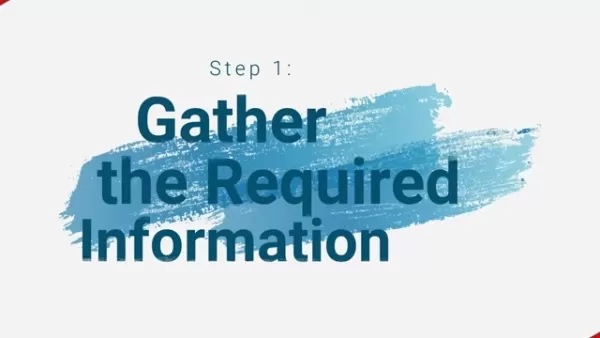 AI-Powered Cover Letters: Expert Guide for Journal Submissions
In today's competitive academic publishing environment, crafting an effective cover letter can make the crucial difference in your manuscript's acceptance. Discover how AI-powered tools like ChatGPT can streamline this essential task, helping you cre
AI-Powered Cover Letters: Expert Guide for Journal Submissions
In today's competitive academic publishing environment, crafting an effective cover letter can make the crucial difference in your manuscript's acceptance. Discover how AI-powered tools like ChatGPT can streamline this essential task, helping you cre
 US to Sanction Foreign Officials Over Social Media Regulations
US Takes Stand Against Global Digital Content Regulations
The State Department issued a sharp diplomatic rebuke this week targeting European digital governance policies, signaling escalating tensions over control of online platforms. Secretary Marco
US to Sanction Foreign Officials Over Social Media Regulations
US Takes Stand Against Global Digital Content Regulations
The State Department issued a sharp diplomatic rebuke this week targeting European digital governance policies, signaling escalating tensions over control of online platforms. Secretary Marco
 Ultimate Guide to AI-Powered YouTube Video Summarizers
In our information-rich digital landscape, AI-powered YouTube video summarizers have become indispensable for efficient content consumption. This in-depth guide explores how to build a sophisticated summarization tool using cutting-edge NLP technolog
Ultimate Guide to AI-Powered YouTube Video Summarizers
In our information-rich digital landscape, AI-powered YouTube video summarizers have become indispensable for efficient content consumption. This in-depth guide explores how to build a sophisticated summarization tool using cutting-edge NLP technolog
 August 12, 2025 at 9:00:59 AM EDT
August 12, 2025 at 9:00:59 AM EDT
AI in government contracts sounds like a sci-fi plot, but the legal maze is real! Super fascinating how fast this tech is moving—hope they sort out the red tape soon. 🚀


 0
0
 July 27, 2025 at 9:18:39 PM EDT
July 27, 2025 at 9:18:39 PM EDT
AI in government contracts sounds like a sci-fi plot, but it’s real and tricky! The legal maze is wild—makes me wonder if AI will outsmart the lawyers before it runs the show. 😅 Fascinating read!


 0
0





























